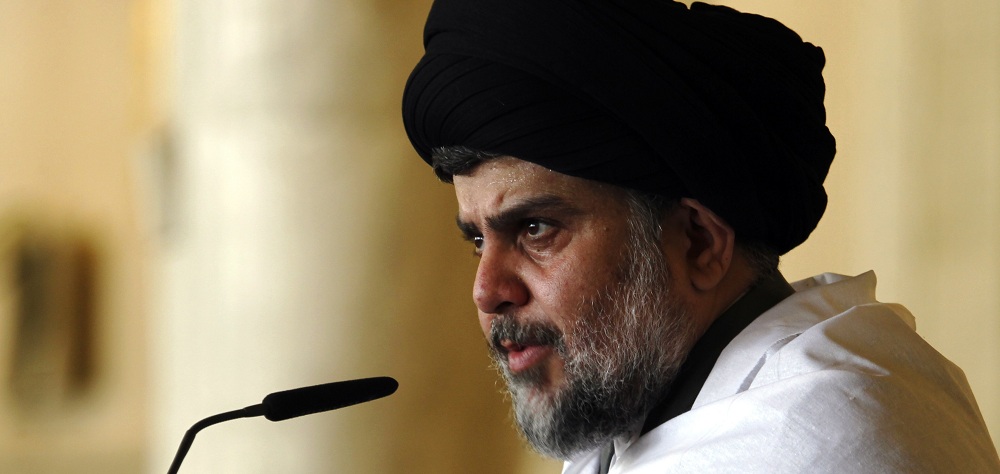Alwaght- While the anti-government protests continue in Iraq, the tense political scene every day sees a new development. After the resignation of Prime Minister Adel Abdul Mahdi, the country is expecting President Barham Saleh to name a new PM to form the cabinet. Meanwhile, the Muqtada al-Sadr-led Saeroon coalition, which is one of the two biggest parliamentary blocs in the country, shows reluctance to involve in politics.
The Saeroon coalition, as the biggest bloc, has not yet shown a positive signal for the formation of a new government. In the latest move since the outbreak of protests in two months ago, the office of al-Sadr stated on Friday that the movement closed all of its institutions across the country for a year. The statement added that only the shrine of Sayed Mohamad Sadeq al-Sadra and Saraya Al-Salam are exempted and will continue their activities. The decision has raised a question about why the movement has done so at the time being. Al-Sadr Movement had not yet explained why it made such a decision, but the move can be analyzed in two levels.
Al-Sadr figures out that the protests took a riotous and violent path
First, it should be pointed that gradually the Iraqi political officials and on top of them Muqtada al-Sadr who has been a decisive supporter of the demonstrations get to the fact that the legitimate and peaceful popular protests were hijacked by covert hands and meddling of the foreign actors and derailed from their right course and are turning into riot and violence.
The decision comes following a set of developments. The vehicle carrying the son of Jaafar al-Mousawi, the spokesman to the al-Sadr movement, came under attack in a Baghdad district by unidentified armed men. This was followed by a horrible execution of Haitham Ali Ismail, an Iraqi teenager, in Baghdad by protesters. The teenager was lynched on a traffic light by mobs who claimed he fired warning shots on the crowds protesting near his home. Furthermore, Al-Hannah district of Baghdad, where al-Sadr himself resided, came under attack of unknown drones on December 7.
These developments appear to have pushed al-Sadr and other figures close to him to the notion that the peaceful popular protests have begun to take a dangerous turn. Initially, al-Sadr was optimistic that by leading the demonstrations, the atmosphere will be ready for a further power gain of his movement but the worrisome developments indicated that amid violence no political side can keep its interests immune to damages coming from fury and feud of the rioters and mercenaries backed by foreign actors. It seems that al-Sadr has made sure that continued protests will not serve as a factor promoting the power and interests of any political side and that in the near future his movement can be one of the victims.
Reviewing massive presence in demonstrations
One of the troubles of the Iraqi security forces over the past month in dealing with the protests was the presence of the forces of Saraya al-Salam, a militant force affiliated with the al-Sadr movement, among the protestors. Under the excuse of supporting the demonstrating people against potential killings, al-Sadr ordered Saray al-Salam forces to spread across the protest scenes and protect the people. The move was criticized by the security officials. Iraqi police warned al-Sadr that his forces were causes of road blockades instead of instruments of support to people.
Now the recent developments showed that Saraya al-Salam forces and people close to al-Sadr were themselves targeted by armed groups active under the cover of protestors. The current developments show that those obstructing the peaceful protests and dragging them to violence never take any side as their friend. Their sole aim is to further fuel the violence so that the country moves away from political stability.
In such a situation, al-Sadr and his forces find it in their interest to separate ways from the rioters. Closing the institutions can be a prelude to the start of the withdrawal of Saraya al-Salam from the protests. Al-Sadr and the allies should accept the reality that the continuation of violent protests in the country has no winner and all will lose at the end of the road.



























